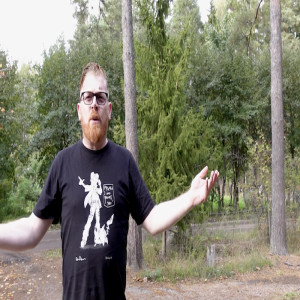
When we found this farm for the very first time all the way back in 2013 we knew very little about it, so little in fact that the coffee didn't even have an official name! Back then all we knew was that the coffee was grown by a gentleman called Carlos Arrieta and it was really, really delicious! However, since then I've been lucky enough to visit Carlos on my trips to Costa Rica and, over the past few years, have found out lots more.
The farm is located in the Western Valley region near to the town of Lourdes de Naranjo. It's located at 1,600 meters above sea level and contains mostly Caturra, Catuai + a tiny bit of Villa Sarchi, there are also plans to plant some small micro-lots too in the future. El Manantial is actually one of Carlos's four farms...
- La Casa - mostly planted with Geisha and Kenya!
- La Isla - run by Maria’s niece and only just starting to produce coffee, it sits at 1,400 m.a.s.l. and 1.4 hectares in size, and is planted with Villa Sarchi, Kenya, Geisha and Ethiopia
- El Oasis - slightly smaller than El Manantial and produces around 6,000kg of fresh cherries each year
- El Manantial - around 3 hectares in size and produces around 8,500kg of fresh cherries each year (amounts to just over 1,000kg of green coffee when processed)
Carlos runs the farm with his wife and children, Maria Isabel, Yessica, Karen, Esteban and Jose Ignacio. He has owned this farm for almost twenty years but only started processing the coffee himself in 2014 (while still paying someone else to pulp it for him). He hadn't been able to present his coffee to a single buyer previously, so he would send it to the exporter we use in Costa Rica and, thankfully, that's how we found him!
The mill name "ARBAR" comes from the combined family names - Carlos ARietta and Maria BARboza - ARBAR. Their children are Yessica, Karen, Esteban & Jose Ignacio.
Carlos is very active in the local community and they have close relationships with their neighbours - which includes CoE winning mills like Herbazu, Vista Al Valle and Sumava. The farm operates mostly Organic processes, but they're not Organic certified. They believe in the value of biodiversity on the farms, and plants like fruit trees are positioned among the coffee plants to provide shade and to help the soil. These trees also provide food for the family. They even have a few sheep and other animals, with the farm being as self-sufficient as possible. They have one full-time employee, who lives on the farm.
When Carlos and his family started selling to us, it gave them a chance to
try new things; the prices that we pay gave them the opportunity to take bigger risks. One of the ways they did this was by trying small plantings of new varietals including Bourbon, Kenya (SL28) and Geisha which we saw some of for the first time last year and are really excited to welcome back again soon.
This coffee has been processed at the ARBAR micromill using the Red Honey process. Honey processing is somewhat similar to a Pulped Natural (but uses less water), falling somewhere in between a Washed and a Natural coffee both in terms of contact between the cherry mucilage and the bean during drying time and in the resulting flavour profile. The outer skin and fruit pulp is removed from the seed (bean) of the coffee inside, and it's left to dry. The colour in the name refers to the amount of sticky fruit that's left on the surface of the seed after depulping - darker indicates more / lighter indicates less. This method can present some risk of over fermentation during processing but water is a precious commodity in this area of Costa Rica, so this method suits the location very well. Carlos definitely has the skills to pay the bills though so no worries about mucking up the Honeys at ARBAR!
What hits me first in this coffee is loads of stone fruit sweetness. It’s all nectarines and greengages, with a lovely silky texture. On the finish, there’s a little waft of lemon wrapping it all up.
- Country: Costa Rica
- Region: Western Valley
- Town: Lourdes de Naranjo
- Farm: El Manantial
- Producer: Carlos Arrieta
- Micro mill: ARBAR
- Altitude: 1,600 m.a.s.l.
- Varietals: Caturra, Catuai & Villa Sarchi
- Processing system: Red Honey
Clean Cup: (1-8): 6.5
Sweetness: (1-8): 7
Acidity: (1-8): 6
Mouthfeel: (1-8): 6.5
Flavour: (1-8): 7
Aftertaste: (1-8): 6
Balance: (1-8): 6
Overall: (1-8): 7
Correction:(+36): +36
Total (max 100): 88
Roast Information
Medium - through first crack, let it develop a little in the gap but drop this before you get to second to preserve that fruit sweetness.
More Episodes
 2019-06-29
2019-06-29
 2019-06-15
2019-06-15
 2019-06-01
2019-06-01
 2019-05-18
2019-05-18
Create your
podcast in
minutes
- Full-featured podcast site
- Unlimited storage and bandwidth
- Comprehensive podcast stats
- Distribute to Apple Podcasts, Spotify, and more
- Make money with your podcast
It is Free
- Privacy Policy
- Cookie Policy
- Terms of Use
- Consent Preferences
- Copyright © 2015-2024 Podbean.com






